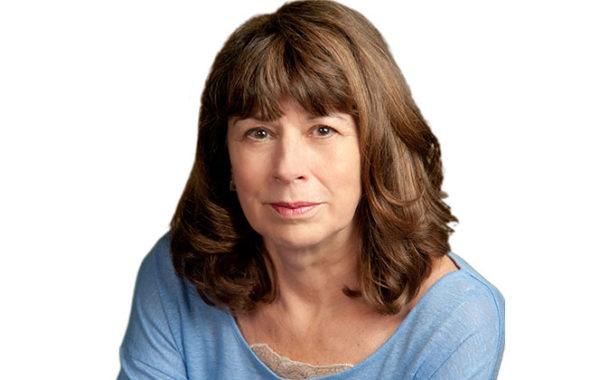*****EVENT CANCELLED*****
TORONTO, March 11, 2020 – The demands on policing in Canada have never been greater. Gender and race issues, the globalization of money and money laundering, corruption and cybercrime are all pressing matters. They beg questions about democratic governance, accountability and control of police.
Law and Disorder – a symposium on Saturday, March 14 to be presented by Osgoode Hall Law School’s Nathanson Centre on Transnational Human Rights, Crime and Security in honour of its founding director, the late Professor Margaret Beare – will discuss the challenges of policing and governance in a globalizing world.
Among the more than a dozen speakers will be Associate Professor Stephen Wilks, Mercy School of Law, Detroit; Anna Willats, Member of the Toronto Police Accountability Commission; Peter German, President, International Centre for Criminal Law Reform, Vancouver; Nathalie Des Rosiers, Principal, Massey College, Toronto; and Philip Stenning, Griffith Criminology Institute, Brisbane, Australia.

Late Professor Margaret Beare
Beare, an esteemed criminologist who joined the faculty of York University in 1995 in the Department of Sociology with a cross appointment to Osgoode, died in August of cancer at the age of 72.
Educated at Guelph University (BA ’68, MA ’71), University of Cambridge in England (Diploma in Criminology, ’74) and Columbia University in New York (PhD ’87), her career in transnational police policy and the study of organized crime began with her role as senior research officer in the Office of the Solicitor General in Ottawa where she worked from 1982 to 1993.
“Margaret was a research powerhouse at Osgoode, blending sociology, criminology, and law like no one else,” said Professor François Tanguay-Renaud, co-director of the Nathanson Centre. “As the founding director of the Nathanson Centre, she put it on the map from day one – producing countless reports that are cited to this day and hosting numerous workshops and conferences on cutting-edge issues. Her deep connections in the worlds of policing and crime-related policymaking, most centrally organized crime policy, made her the go-to person whenever a socio-legal analysis of these domains was needed. The Canadian legal academe has lost a giant in Margaret Beare.”
The author, co-author or editor of numerous books and articles on money laundering, international policing policy, gang violence and social justice, Beare was the founding director of Osgoode’s Nathanson Centre for the Study of Organized Crime & Corruption – now called the Jack & Mae Nathanson Centre on Transnational Human Rights, Crime and Security – and remained a faculty member at York until her death.
WHAT: Law and Disorder: A symposium and tribute to Margaret Evelyn Beare
For program details, visit here.
WHEN: Saturday, March 14, 2020 from 9:30 a.m. to 3:30 p.m.
WHERE: Osgoode Professional Development, Room 2602, 26th floor, 1 Dundas St. W. (at Yonge St.), Toronto
About Osgoode Hall Law School
Osgoode Hall Law School of York University has a proud history of 131 years of leadership and innovation in legal education and legal scholarship. A total of about 900 students are enrolled in Osgoode’s three-year Juris Doctor (JD) Program as well as joint and combined programs. The school's Graduate Program in Law is also the largest in the country and one of the most highly regarded in North America. In addition, Osgoode Professional Development, which operates out of Osgoode’s facility in downtown Toronto, offers both degree and non-degree programming for Canadian and international lawyers, non-law professionals, firms and organizations. Osgoode has an internationally renowned faculty of 60 full-time professors, and more than 100 adjunct professors. Our respected community of more than 18,000 alumni are leaders in the legal profession and in many other fields in Canada and across the globe.
About York University
York University is known for championing new ways of thinking that drive teaching and research excellence. Our students receive the education they need to create big ideas that make an impact on the world. Meaningful and sometimes unexpected careers result from cross-discipline programming, innovative course design and diverse experiential learning opportunities. York students and graduates push limits, achieve goals and find solutions to the world’s most pressing social challenges, empowered by a strong community that opens minds. York U is an internationally recognized research university – our 11 faculties and 26 research centres have partnerships with 200+ leading universities worldwide. Located in Toronto, York is the third largest university in Canada, with a strong community of 53,000 students, 7,000 faculty and administrative staff, and more than 300,000 alumni.
York U's fully bilingual Glendon campus is home to Southern Ontario's Centre of Excellence for French Language and Bilingual Postsecondary Education.
Media Contacts:
Virginia Corner, Communications Manager, Osgoode Hall Law School of York University, 416-736-5820, vcorner@osgoode.yorku.ca
Gloria Suhasini, York University Media Relations, 416-736-2100 ext. 22094, suhasini@yorku.ca

